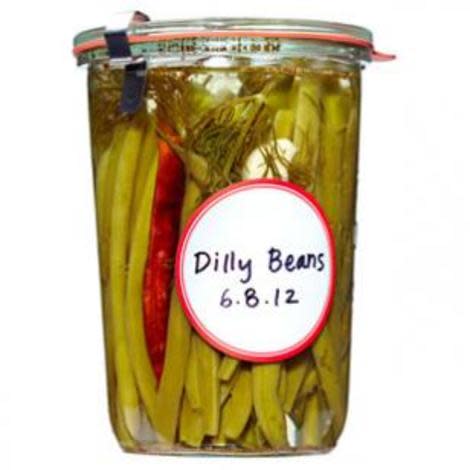Is Eating Food from the Farmer’s Market Safe?

By Kerri-Ann Jennings, M.S., R.D. Associate Nutrition Editor, EatingWell Magazine
Shopping at a farmer's market is a great way to support your local economy and stock up on the freshest seasonal produce. (Did you know that when fruits and vegetables are picked at their peak ripeness, they are most nutrient-packed?)
Related: 8 Summer Foods You Should Stock Up On
But when it comes to some of the food at the market, there's debate whether it's safe and should even be legal.
I'm talking about those hand-canned jars of pickles and other "value-added" foods that have been made in a home kitchen, rather than a commercial one. In many states, selling food that hasn't been made in a commercial kitchen is illegal. It's a food safety measure that's a first step in ensuring the food you eat won't give you a bellyache or worse (some improperly-canned foods can harbor botulism, a type of food-borne illness that starts with flu-like symptoms, but can lead to double or blurred vision, drooping eyelids, slurred speech and/or difficulty swallowing and dry mouth). However, using a commercial kitchen--or getting your home kitchen outfitted, inspected and licensed--is pricey and keeps a lot of would-be prepared food vendors (like farmers) out of the market. So across the country, more states are passing cottage food bills. These bills allow local food entrepreneurs to produce items that carry a low risk for food-borne illness, such as baked goods, jams and pickles. Here are some pros and cons from two experts familiar with the issue--as reported in EatingWell Magazine:
Must-Read: 5 Surprising Foods You Should Keep in the Refrigerator
When Do the Nutrients In Your Food Expire?
Con
"Although I admire the entrepreneurial spirit, getting exemptions from food-safety rules or inspection procedures is just not something business owners or customers should do. I always tell companies--big, medium or small--to embrace some level of regulation. When you balance the convenience of somebody running a business versus public health, I think you have to bend in favor of public health."
--Bill Marler, food-safety advocate and attorney
Must-Read: 10 Food Safety Rules You Need to Follow
Pro
"There have been almost no reported food-borne illness issues with cottage food operations. In many ways these foods are safer than their commercial counterparts because of supply chain and traceability issues. Commercial products have much more complex supply chains that span multiple states and countries. That means more opportunities for food contamination."
--Wes King, sustainable farming advocate and cottage food policy advisor
Related: 5 Things in Your Kitchen That Could Make You Sick
Do you think people should be able to sell food at farmer's markets that's been produced in a home kitchen?
By Kerri-Ann Jennings

Kerri-Ann Jennings, a registered dietitian, is the associate nutrition editor of EatingWell Magazine, where she wields her master's degree in nutrition from Columbia University writing and editing news about nutrition, health and food trends. In her free time, Kerri-Ann likes to practice yoga, hike, bake and paint.
More from EatingWell:
